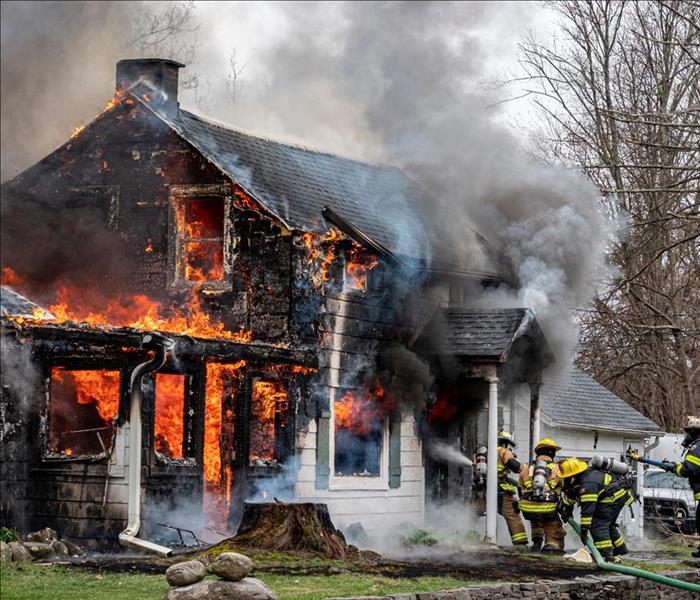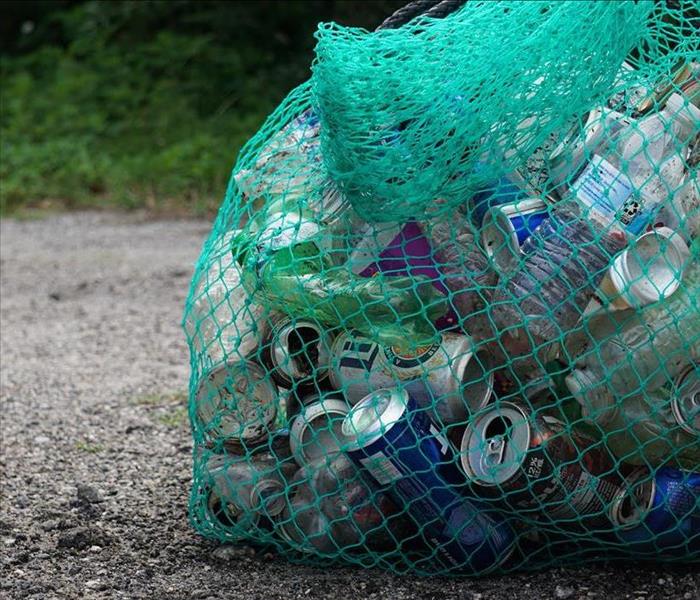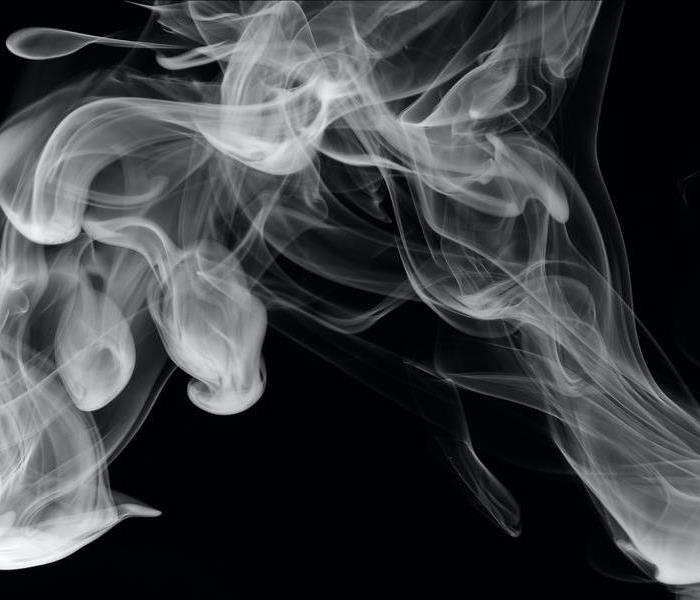Archived Fire Damage Blog Posts
What Happens After a Fire | SERVPRO of Issaquah East & North Bend
12/22/2023 (Permalink)
 The aftermath of a home fire is overwhelming, but we are here to restore your home with ease. Call SERVPRO of Issaquah East & North Bend now!
The aftermath of a home fire is overwhelming, but we are here to restore your home with ease. Call SERVPRO of Issaquah East & North Bend now!
Even just the thought of suffering a house fire can keep homeowners up at night. House fires continue to be one of the scariest possibilities when it comes to owning a home and the risks associated with it! Thousands of house fires happen across the country every year, so it is important to be prepared for the fact that one may happen to you someday.
While we truly hope it doesn’t, you should know who to call to help you put your home back together again. After the flames are out and the fire department has left, get on the phone and call SERVPRO of Issaquah East & North Bend.
Our First Conversation
Our team is proudly available 24/7, so we will pick up the phone no matter if you call us at 8 p.m. or 3 a.m. We know that disasters don’t just happen when it is convenient, so we are always here just in case.
Our team will quickly start to put together a restoration plan by identifying the emergency contact and by asking many questions about the fire. We will ask how it started, where it spread to and the extent of the damage you see. These questions help ensure we have the right team and equipment packed up before we head to your house.
Once we arrive, we will do a visual assessment of your home to make sure our plans align with the reality of the situation, and we also make sure your home is safe to be in while we work. At this point, we will work on boarding up windows or laying tarps over exposed sections of your home to protect it from further damage due to the elements or weather.
We will also start extracting any standing water! Did you know that most house fires also have water damage or standing water to deal with? That’s because of the firefighting efforts used to put out the flames.
Removing Debris
Now that the water is gone, we can start moving out damaged debris. Depending on the extent of the damage, we will also go through each level and room of your home to remove soot and smoke odors. Smoke can travel to areas of your house that the flames never touched, so we make sure to be thorough in our search.
We will also prioritize your possessions and work hard to save as much of them from permanent damage as possible. We operate on a “restore rather than replace” mentality, so we work hard to clean, sanitize and remove smoke from everything that we can.
The Rebuilding Process
Now that your home is clean and ready to be rebuilt, our team will get to work on the reconstruction needs. Some homes only need minor repairs while others will require partial demolition before they can be rebuilt safely.
We can handle it all! Our team is also a full-service construction and remodeling company, so we can take your home from ruin to remodeled quickly and thoroughly.
Your home is always in good hands with SERVPRO of Issaquah East & North Bend. Contact us if you ever suffer a house fire so we can be there for you.
House fires can be scary and overwhelming. Let SERVPRO of Issaquah East & North Bend help you recover.
Cooking Safely on Thanksgiving: 3 Tips to Prevent Fires
11/6/2023 (Permalink)
 Thanksgiving is a time for family, friends, and delicious feasts.
Thanksgiving is a time for family, friends, and delicious feasts.
Thanksgiving is a time for family, friends, and delicious feasts. However, it's also a day when cooking fires are all too common. The hustle and bustle in the kitchen, combined with multiple dishes being prepared simultaneously, can increase the risk of accidents. To ensure your holiday remains joyful and fire-free, here are three essential tips to help reduce the risk of cooking fires on Thanksgiving.
Stay Vigilant and Avoid Distractions: Cooking multiple dishes at once, while entertaining guests and managing other holiday preparations, can be overwhelming. It's easy to get distracted, but this is one of the primary causes of kitchen fires. To prevent such accidents, keep the following in mind:
Set a timer for each dish: Timers can help you keep track of different cooking times and prevent overcooking or burning. It's a simple but effective way to stay organized and avoid distractions.
Assign a "kitchen manager": Designate someone to be responsible for the kitchen and cooking activities. This person can ensure that nothing is left unattended, and they can call for help if needed.
Keep flammable items away: Make sure to keep dish towels, oven mitts, and other flammable materials away from stovetops and hot surfaces. These materials can quickly catch fire if they come into contact with open flames or hot cookware.
Maintain a Clean and Clutter-Free Cooking Environment: A cluttered kitchen can become a breeding ground for accidents. It's essential to maintain a clean and organized cooking environment to minimize the risk of fires. Here's what you can do:
Clear the area around the stove: Make sure there are no paper towels, dishcloths, or other flammable objects near the stove. It's all too easy for these items to catch fire if they accidentally come into contact with hot burners.
Clean your oven and stovetop: Grease and food particles can accumulate over time, increasing the risk of flare-ups. Regularly clean your oven, stovetop, and exhaust fan to prevent this buildup.
Use proper cookware: Ensure that you're using cookware with flat, stable bottoms that won't easily tip over. Also, never leave pots and pans unattended on the stovetop, especially when cooking with oil.
Be Prepared for Emergencies: Even with the best precautions, accidents can still happen. Being prepared for emergencies can make all the difference in preventing small incidents from turning into major disasters:
Keep a fire extinguisher in the kitchen: Make sure you have a working fire extinguisher within easy reach in your kitchen. Know how to use it and instruct your family members or guests as well.
Create a fire escape plan: Discuss and establish a fire escape plan with your family, including the nearest exits and a meeting point outside. This plan is crucial in case a fire breaks out and evacuation becomes necessary.
Call 911 immediately: In the event of a fire that you can't control, call 911 without delay. Do not attempt to extinguish a large or spreading fire on your own.
Thanksgiving should be a day of gratitude and celebration, not one marred by cooking fires. By staying vigilant, maintaining a clean cooking environment, and being prepared for emergencies, you can reduce the risk of accidents and enjoy a safe and happy holiday with your loved ones. Remember, a little extra caution in the kitchen can go a long way in ensuring a memorable and incident-free Thanksgiving.
Candle Safety and Alternatives
8/18/2023 (Permalink)
 Candles have many flameless alternatives.
Candles have many flameless alternatives.
Candles have a timeless allure, casting a warm and enchanting glow that transforms any space into a cozy haven. Their presence can bring a sense of tranquility and nostalgia, but beneath the soothing ambiance lies a potential danger that should never be overlooked. The mesmerizing dance of a candle's flame can turn into a dangerous inferno if left unattended for too long.
The Hidden Threat of Spontaneous Combustion:
You might think that a candle's worst enemy is the gust of a strong breeze, but the real danger lies in something much more sinister: spontaneous combustion. This phenomenon occurs when a candle is left burning for an extended period, typically beyond four hours. As the candle consumes its wax, it generates heat that can build up within its surroundings. If the ambient temperature is warm enough, the heat can ignite flammable objects nearby, leading to a fire that could rapidly engulf a room or even an entire home.
Why Candle Safety Matters:
Candle safety isn't just a trivial matter; it's a crucial aspect of ensuring the well-being of your home and loved ones. Here are some important reasons why practicing caution with candles is essential:
Preventing Fires: The most obvious reason is to prevent fires from occurring. The consequences of a candle-related fire can be devastating, leading to property damage, injuries, or even loss of life.
Smoke and Soot: Prolonged candle burning can produce excessive smoke and soot, which can tarnish your walls, furniture, and the air quality in your home.
Pet Safety: If you have pets at home, an unattended candle can pose a significant risk to their safety. Curious pets might accidentally knock over a candle or get too close to the flame, resulting in burns or other injuries.
Environmental Impact: Traditional candles often contain paraffin, a petroleum-based wax that releases harmful chemicals when burned. This can contribute to indoor air pollution and negatively impact the environment.
Candle Safety Tips:
If you're a candle enthusiast, there's no need to forsake your love for these beautiful sources of light. By following these safety tips, you can enjoy the cozy ambiance while minimizing risks:
Never Leave Unattended: Always extinguish candles before leaving a room or going to sleep. Even a short absence can lead to unexpected incidents.
Trim the Wick: Keep the wick trimmed to around 1/4 inch to prevent excessive flickering, smoke, and soot.
Use Proper Holders: Place candles in sturdy, non-flammable holders on a flat, heat-resistant surface.
Keep Away from Flammables: Keep candles away from curtains, paper, or any other flammable materials.
Ventilation: Ensure proper ventilation in the room to prevent a buildup of heat and smoke.
Time Limit: Limit candle burning to a maximum of 2-3 hours at a time, allowing the wax to cool down before relighting.
Flameless Alternatives:
For those who prioritize safety but still want to create a soothing atmosphere, flameless candle alternatives offer a wonderful solution:
LED Candles: These candles mimic the flickering effect of real candles without the actual flame. They are safe, reusable, and available in various sizes and designs.
Oil Diffusers: Essential oil diffusers not only emit pleasant scents but also provide soft lighting. Some models come with LED lights that can mimic candlelight.
String Lights: Delicate string lights can add a magical touch to any room, creating a warm and inviting atmosphere.
The allure of candles is undeniable, but their potential danger should never be underestimated. By adhering to candle safety guidelines and considering flameless alternatives, you can create a cozy ambiance without compromising the safety of your home and loved ones. So, whether you're relaxing alone or hosting a gathering, remember that a little caution goes a long way in ensuring both comfort and safety.
The Burning Consequence: How Littering Increases the Risk of Fires Around Homes and Businesses
7/7/2023 (Permalink)
 Littering harms our environment, our community, and the nature around us.
Littering harms our environment, our community, and the nature around us.
Picture a serene neighborhood with beautifully landscaped gardens and bustling commercial areas that are home to thriving businesses. Now, imagine this idyllic scene marred by the devastating consequences of a fire. One of the lesser-known factors that contribute to the escalation of such fires is littering. Let's examine the often overlooked link between littering and the increased risk of fires surrounding homes and businesses.
Ignition Sources
Discarded litter serves as potential ignition sources, especially in dry and flammable environments. Cigarette butts, matchsticks, and other smoldering materials can easily ignite and spark a fire when they come into contact with dry grass, leaves, or other combustible materials. As litter accumulates around residential areas and commercial spaces, the probability of accidental ignition rises, putting properties and lives at risk.
Chemical Reactions
Certain types of litter, such as hazardous waste or chemical containers, pose an even greater threat. When improperly disposed of, these materials can react with each other or with the environment, leading to fires and explosions. Chemical reactions can occur due to the mixture of incompatible substances, exposure to heat or sunlight, or the accumulation of reactive materials in close proximity. Negligent littering not only endangers lives but can also have severe ecological consequences.
Blocked Drainage Systems
Litter, particularly plastic waste, can accumulate in storm drains, gutters, and other drainage systems. When these pathways become blocked, they hinder the smooth flow of water during rainstorms or firefighting efforts. This obstructed drainage can cause water to accumulate in undesired areas, increasing the risk of flooding and hindering fire suppression efforts when they are needed the most.
Fuel for Fires
The presence of litter, especially in urban or suburban areas, provides ample fuel for fires to spread rapidly. Dry vegetation, fallen leaves, and trash can act as kindling, enabling flames to engulf larger areas. Once a fire starts, it can easily jump from one piece of litter to another, rapidly intensifying and endangering nearby homes and businesses. The accumulation of litter also creates an additional challenge for firefighters, as it obstructs their access to affected areas.
Wind-Driven Fires
Wind can play a significant role in spreading fires, and littered areas are more susceptible to wind-driven blazes. Lightweight litter, such as paper, plastic bags, or discarded packaging, can be easily carried by gusts of wind, depositing them in nearby open spaces, trees, or buildings. These scattered fragments become potential fuel sources, increasing the likelihood of secondary fires and making fire containment more challenging.
Littering may seem like a minor offense, but its impact on fire risk cannot be ignored. From ignition sources to blocked drainage systems and the provision of abundant fuel for flames, discarded trash can quickly transform into a devastating fire hazard. Raising awareness about the correlation between littering and fire risks is crucial for fostering responsible waste management practices. By promoting proper disposal, recycling, and community involvement, we can work together to reduce the risk of fires around our homes and businesses, ensuring a safer and more resilient environment for everyone.
Up in Smoke: The Hidden Health Hazards of Inhalation
5/22/2023 (Permalink)
 Smoke inhalation can have long-lasting consequences.
Smoke inhalation can have long-lasting consequences.
When it comes to fires and smoke, the visible damage is often just the tip of the iceberg. In addition to the immediate dangers of flames and heat, the aftermath of a fire can pose significant health risks. One of the most insidious threats is the inhalation of smoke and soot particles. Let's explore the hidden dangers of inhaling smoke or soot and the potential health consequences associated with it.
The Composition of Smoke and Soot: Smoke is a complex mixture of gases and fine particles that result from the incomplete combustion of organic materials. Soot, on the other hand, refers to the black residue composed of carbon-based particles released during the burning process. These particles can be extremely small, making them easily inhaled deep into the respiratory system.
Respiratory Issues: Inhaling smoke or soot can have severe implications for your respiratory health. The toxic chemicals and irritants present in smoke can cause immediate symptoms such as coughing, wheezing, shortness of breath, and chest tightness. Prolonged exposure to these pollutants can lead to more serious conditions like bronchitis, asthma, and even chronic obstructive pulmonary disease (COPD).
Cardiovascular Effects: Research suggests that exposure to smoke and soot can also affect the cardiovascular system. The fine particles can enter the bloodstream, triggering inflammation and oxidative stress, which can increase the risk of heart attacks, strokes, and other cardiovascular problems. Individuals with pre-existing heart or lung conditions are particularly vulnerable.
Chemical Exposure: Smoke contains a range of hazardous substances, including carbon monoxide, volatile organic compounds (VOCs), and carcinogenic compounds. Inhaling these toxic chemicals can have long-term consequences, potentially leading to respiratory and systemic diseases, as well as an increased risk of cancer.
Psychological Impact: It is important not to overlook the psychological toll of experiencing a fire and inhaling smoke or soot. The trauma associated with such an event can cause anxiety, post-traumatic stress disorder (PTSD), and depression. Seeking emotional support and professional help is crucial for overall well-being.
The aftermath of a fire extends beyond the visible damage, and the health risks associated with inhaling smoke or soot should not be underestimated. Whether you have experienced a fire or are exposed to smoke from other sources, taking precautions to minimize exposure is essential. If you have been affected, seek medical attention promptly and engage professionals who specialize in fire damage restoration to ensure thorough cleanup and removal of harmful particles. Prioritizing your health and safety is key when it comes to recovering from the impact of fire and smoke incidents.
Summer Fire Safety: Protecting Your Home or Business
5/17/2023 (Permalink)
 Summer time brings fun in the sun, but it's important to stay aware of potential sources of fire.
Summer time brings fun in the sun, but it's important to stay aware of potential sources of fire.
As the summer season arrives, it brings along warmer temperatures and longer days, creating the perfect conditions for outdoor activities and relaxation. However, it's crucial not to overlook the potential risks that come with summer, particularly the increased threat of fire. Whether you're a homeowner or a business owner, taking proactive steps to protect your property from fire hazards is essential. Let's explore some key fire safety measures to ensure your home or business remains safe and secure during the summer months.
Maintain Adequate Fire Safety Equipment
Investing in reliable fire safety equipment is a fundamental step in protecting your property. Make sure you have functioning smoke detectors installed throughout your home or business, checking them regularly to ensure they are in good working condition. Equally important is having fire extinguishers readily available, strategically placed in accessible areas. Educate yourself and others on how to use fire extinguishers effectively.
Clear Vegetation and Debris
During the summer, dry vegetation and debris can quickly become fuel for a potential fire. Create a defensible space around your property by clearing any dead leaves, branches, or overgrown vegetation. Pay particular attention to areas close to buildings, fences, and utility connections. Regularly remove dry or dead plants from your garden, keeping them well-maintained to minimize the risk of ignition.
Practice Safe Outdoor Cooking
Outdoor cooking is a popular summer activity, but it also presents fire hazards. When grilling or using open flames, ensure that you maintain a safe distance from structures, trees, and other flammable materials. Always attend to the grill or fire pit, never leaving them unattended. Keep a fire extinguisher nearby and have a plan in place for handling grease fires.
Be Mindful of Electrical Devices
With summer comes an increased reliance on electrical devices such as fans, air conditioners, and outdoor lighting. Check for any frayed or damaged cords, and replace them immediately. Avoid overloading electrical outlets and use surge protectors where necessary. Be cautious when using extension cords outdoors, making sure they are suitable for outdoor use and protected from moisture.
Properly Store and Dispose of Flammable Materials
Take extra care when storing or disposing of flammable substances like gasoline, paint, or cleaning products. Keep them in well-ventilated areas, away from direct sunlight, heat sources, or open flames. Store such materials in their original containers and tightly seal them when not in use. Follow the appropriate guidelines for disposal to prevent accidental fires.
Have an Evacuation Plan: Prepare a detailed evacuation plan for your home or business and ensure that all occupants are aware of it. Conduct regular fire drills to practice evacuation procedures, designating safe meeting points outside the building. Teach everyone how to safely escape in case of fire, emphasizing the importance of staying low to avoid smoke inhalation. Post emergency contact numbers in easily visible locations.
Stay Informed
Stay updated with local weather and fire conditions. Monitor alerts and warnings issued by relevant authorities, particularly during periods of increased fire risk. Be aware of any fire restrictions or bans in your area and comply with them accordingly. By staying informed, you can take proactive steps to mitigate risks and protect your property.
Protecting your home or business from fire hazards during the summer months requires vigilance, preparedness, and adherence to safety protocols. By implementing the aforementioned fire safety measures, you can significantly reduce the risk of fire and ensure the well-being of your property and loved ones. Remember, fire safety is an ongoing responsibility, so it's essential to remain diligent throughout the year.
Protecting Your Small Business: Why SERVPRO® is the Right Choice for Fire Damage Restoration in North Bend, WA
3/18/2022 (Permalink)
 Small businesses may be particularly susceptible to damages, but the right fire insurance coverage offers important protection.
Small businesses may be particularly susceptible to damages, but the right fire insurance coverage offers important protection.
Fires can wreak havoc on small businesses in North Bend, WA. Beyond the extensive damage they cause to property and equipment, fires often disrupt daily operations, leading to significant financial losses. Fortunately, fire insurance policies are available to provide essential financial benefits. In this guide, we'll delve into the importance of fire insurance for small businesses and explain why choosing SERVPRO® for fire damage restoration is a wise decision for your business in North Bend, WA.
The Benefits of Fire Insurance for Small Businesses
Fire insurance offers vital coverage for small businesses, including:
Coverage for Physical Damages: Fire insurance typically covers the costs of repairing or replacing damaged property and equipment, helping your business recover from the physical impact of a fire.
Replacement or Repair of Office Fixtures: This coverage extends to office fixtures, ensuring that essential items are repaired or replaced promptly.
Protection Against Lost Business Income: Fire insurance can compensate for the income lost due to the interruption of business operations, providing financial stability during challenging times.
Compensation for Costs of Temporary Relocation: If your business needs to operate from a temporary location while repairs are underway, fire insurance can cover the associated costs.
In some cases, fire insurance policies may even cover losses related to data, interruptions in digital operations, and other computer-related business dealings. For detailed information, it's advisable to consult your insurance provider.
Identify and Reduce Risks
Whether you own the property or lease the building where your business operates, working closely with your insurance company or a fire restoration professional can help identify common risks and take proactive steps to protect your premises. Even if you don't own the building, you can conduct safety assessments to identify potential hazards, such as overloaded power strips, aging appliances, and indoor smoking areas. Fire insurance may also cover your business contents, ensuring comprehensive protection.
Look Beyond Your Business Walls
Fires can be unpredictable and devastating, often arising from unexpected sources. Sometimes, the emergency is triggered by neighboring businesses, extreme weather, rioting, or vandalism. In such cases, your business may require coverage for smoke cleanup and related expenses, even if the flames never reach your building.
Understand Your Coverage Needs
When evaluating your business's insurance needs and discussing coverage options with your provider, it's essential to be realistic. Many business owners opt for minimal coverage and find themselves underfunded when it comes to comprehensive fire restoration services. Engage with your insurance representative to understand the distinctions between replacement cost and cash value terms and any eligibility requirements. Ensuring you have adequate coverage is crucial for navigating the entire restoration process effectively.
Small businesses are particularly vulnerable to fire damage, making the right fire insurance coverage indispensable. Discover more today to ensure your business has the protection it needs.
Why Choose SERVPRO for Fire Damage Restoration
When your small business faces fire damage, selecting SERVPRO for restoration services is a wise choice for several compelling reasons:
- Expertise: SERVPRO technicians are highly trained and experienced in handling fire damage scenarios, ensuring thorough and effective restoration.
- Advanced Technology: We employ state-of-the-art equipment and techniques for fire damage cleanup, smoke and soot removal, and structural restoration.
- Comprehensive Services: SERVPRO offers a wide range of services, from fire damage cleanup to structural repairs, ensuring your business is restored to its pre-fire condition.
- Timely Response: We provide 24/7 emergency response to address your restoration needs promptly, minimizing downtime and accelerating your business's recovery.
By entrusting your fire damage restoration needs to SERVPRO in North Bend, WA, you're choosing a reliable partner dedicated to making the recovery process as smooth and seamless as possible. Protect your small business and ensure a swift recovery by relying on SERVPRO for all your fire damage restoration needs.
 The aftermath of a home fire is overwhelming, but we are here to restore your home with ease. Call SERVPRO of Issaquah East & North Bend now!
The aftermath of a home fire is overwhelming, but we are here to restore your home with ease. Call SERVPRO of Issaquah East & North Bend now!

 24/7 Emergency Service
24/7 Emergency Service





